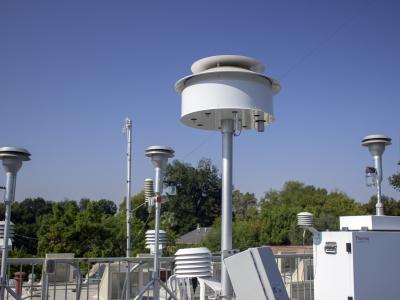
Michigan’s Department of Environment, Great Lakes and Energy (EGLE) has launched a $20 million grant initiative designed to improve public health, monitor pollution and enhance indoor air quality in schools and childcare facilities.
The grants are administered through the EGLE’s Office of the Environmental Justice Public Advocate and are part of the state’s commitment to help communities tackle health and environmental obstacles.
“Half of EGLE’s budget flows back to communities in the form of grants and loans to help address environmental and public health challenges,” EGLE Director Phil Roos said. “Nowhere is the need more evident than in neighborhoods that have been disproportionately impacted by pollution – and those are too often in communities of color and in places without the financial resources to adequately address harmful impacts.”
The grant program is accepting applications through July 15 for projects that focus on specific locations and prioritize equity.
“Addressing historical inequities is an important part of EGLE’s mission and the reason our office exists,” said Regina Strong, head of the OEJPA. “For the first time we have an opportunity to directly fund projects to address environmental justice concerns.”
Applications are being accepted from federally recognized tribes, community-based nonprofits, local governments, schools and childcare centers. Each application can request funding of up to $500,000, with grants to be awarded by early September.
Project activities must come from one or more of:
Community improvement projects
Eligible community improvement projects will be designed to improve public health in the project’s impacted community.
Projects in this category may address a wide array of public health concerns, provided the outcomes positively impact the community.
Pollution monitoring
Eligible projects will initiate or expand monitoring of background pollution levels in air, water or soil affecting the impacted community.
Projects can include purchasing or deploying monitoring equipment (including supplies, hardware, software, etc.), data collection or analysis staffing, or other monitoring-related expenses.
Air monitoring equipment funded through this grant will be classified as air quality sensors and will not be used for regulatory purposes.
School/childcare indoor air quality
Eligible projects will include new or improved equipment or management techniques designed to improve the indoor air quality within one or more schools or day care centers serving the impacted community.
Projects in this category could include the purchase, installation, expansion, improvement, repair or routine maintenance of: air filtration systems, heating/ventilation/air conditioning systems, ventilation improvements, ducting, moisture control, increased use of low-emitting materials, radon testing/mitigation, vapor intrusion testing/mitigation, indoor plants or nature-based indoor air quality solutions, and/or other projects designed to improve the indoor air quality within school or, day care facilities.
Contamination/blight remediation and redevelopment
Eligible projects will contribute to the remediation and/or redevelopment of contaminated or blighted sites affecting the impacted community.
Property owners of proposed project sites must be involved in project applications for this category, though may not necessarily be the lead applicant.
Projects in this category could include clean-up of blighted sites and contaminated properties; remediation and demolition, including asbestos removal or lead abatement; purchase of a blighted or contaminated property.
Photo courtesy of the state of California
The post Michigan opens applications for $20 million in environmental-justice grants appeared first on Government Market News.
